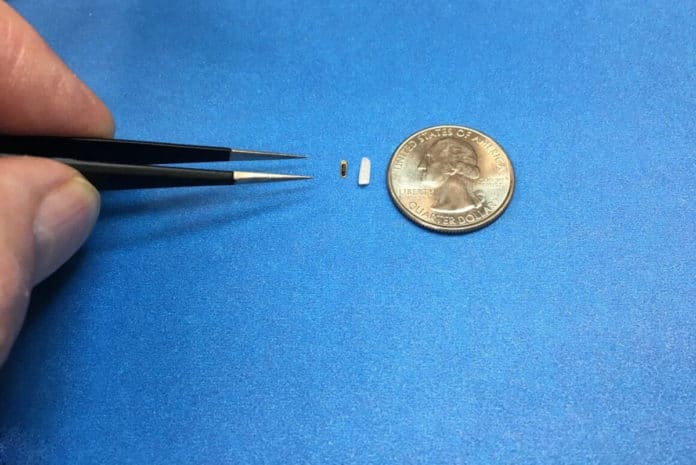Glaucoma is a disease that affects the eyes and that gradually leads to loss of vision, even causing blindness, as a result of damage to the optic nerve, which is responsible for sending the signals that the eye perceives to our brain.
The most important risk factor for developing glaucoma is the increase in intraocular pressure (IOP), that is, the pressure inside the eye. Recently, the scientific team from Injectsense has successfully invented the first implantable sensor and monitoring system designed to collect long-term intraocular pressure (IOP) data.
It continuously monitors the IOP and is expected to provide unprecedented visibility into the IOP profile of the patient over time, which enables the clinician to assess glaucoma therapy effectiveness in real-time. It also helps to keep an eye on previously unobserved changes that may affect glaucoma progression.
The newly developed implant is smaller than a grain of rice – around 2.5 mm x 0.6 mm – and is a wireless silicon sensor module that includes a MEMS pressure sensor and an ASIC. The implant needs to be implanted through ophthalmic surgery and can remain in the eye for years as required.
The current prototype is powered by the external electromagnetic induction, while the team is next planning to include a custom micro-battery. The data can be transmitted wirelessly over a short distance.
The sensor-enabled digital health company plans to have an organ-to-cloud data connection that will provide unprecedented visibility into the IOP profile of the patient over time.
“The product being developed by Injectsense is a game-changer in how and when to regulate the treatment of glaucoma. It offers a tangible path to clinically actionable information, enabling new insights into the true relationship between IOP, glaucoma, and therapy effectiveness. It also opens a world of possibilities into basic research on the inherent changes in the mechanisms of glaucoma,” said Dr. Myron Yanoff, MD, in a release.
